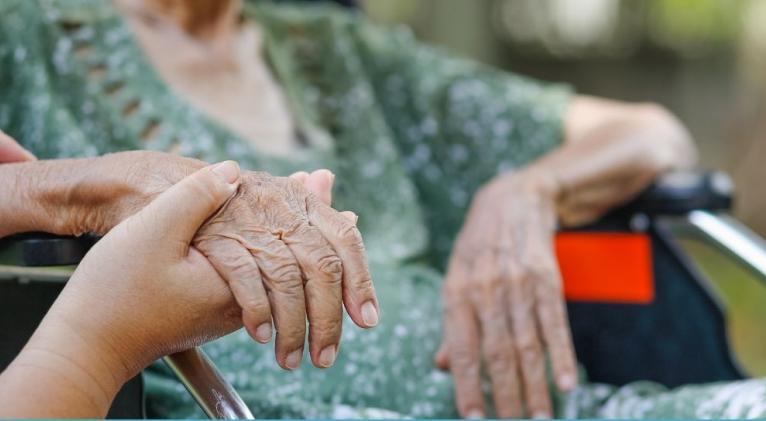The Task of Caring
especiales

The person who constantly cares for another, who devotes himself entirely to a sick parent, child, relative or friend who is unable to care for himself, the so-called caregiver, who sometimes does so full-time, without breaks, runs the risk of suffering and needs strength, more than physical, mental, much more than endurance to endure a process that can’t be known how long will it last, that it will have to carry out day and night, without tools, perhaps learning on teh go, with the stumbles.
The caregiver wears himself out. Many times he has to give up his profession and undertake his new commitment with economic difficulties, without support; or he continues working and back home, they forget everything to care for a person, whether related or not, who may not be conscious all the time, or cannot move, or suffers from some type of progressive disease like Alzheimer, which affects memory, thinking, behavior and other important functions, and which, in addition, has no cure.
Whether it’s a child or an elderly person with a chronic disease or disability, the task of caring involves being attentive all the time, watching over their health, food,and personal hygiene, being aware of everything they do and feel, providing them with entertainment and physical and cognitive stimulation, and as if that weren’t enough, at the same time also running the house, washing, cleaning, tidying, cooking. It’s exhausting, and without realizing it, the caregiver modifies their personal and social routines, and imposes new ways of doing things, all related to the person in their care. They forget about themselves.
No one is prepared to face this task permanently. It’s a complicated, absorbing job, full of sacrifices. In general, caregivers neglect themselves, become overwhelmed, get tired, become emaciated; they feel that they cannot, that they are going crazy and that their efforts are not enough; therefore, they require help, even if they do not ask for it. The issue is having someone to ask for it when it’s a prolonged experience that affects rest.
Then the caregiver syndrome appear, which have to do with physical and emotional excesses: anxiety, depression, stress, irritability, low self-esteem, impatience, lack of concentration, hopelessness; feelings of guilt, frustration, sadness, loneliness and neglect due to the abandonment of their own affairs; also other signs such as continued tiredness, hypertension, muscle pain, insomnia, loss of appetite, and much more.
The recommendations are, in addition to being informed about how to act in each case to master care, to take care of oneself: sleep enough, keep in touch with friends and try to continue social exchanges and hobbies, that is, moments of relaxation whenever possible. It’s advisable not to neglect oneself and take care of one's own nutrition and looks; not to isolate oneself because confinement is often overwhelming; and to accept support, even if only occasionally.
In an aging society like ours, these situations are very frequent. There are many families that must face such difficult contexts, with dependent individuals, lacking autonomy, and they must be watched, assisted to cover their basic needs and keep their quality of life.
Being a caregiver is extremely hard work, with a significant physical and psychological burden that requires self-denial. However, it’s often minimized. We must break the silence.
Translated by Amilkal Labañino / CubaSí Translation Staff














Add new comment